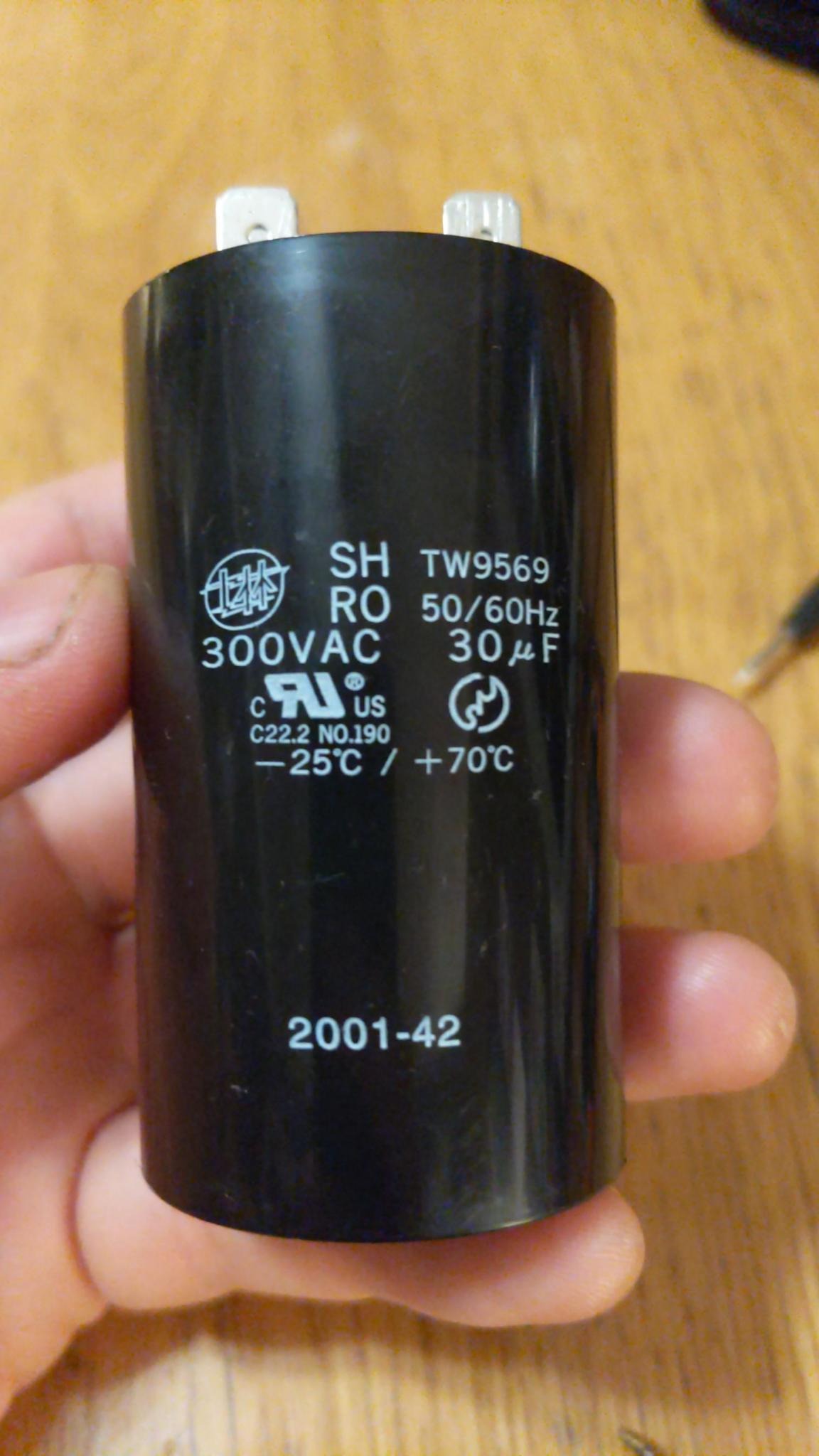I've searched for the numbers, 2001-42 and TW9569 and not finding anything. How would you go about searching for this type of replacement capacitor?
It came from an American Standard Jacquzzi/whirlpool motor that hums when I try to turn it on. I can't seem to find just this part on their website, they only sell the whole motor for e.g. $200.

